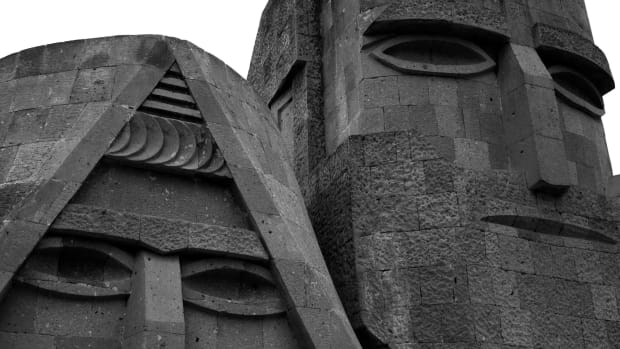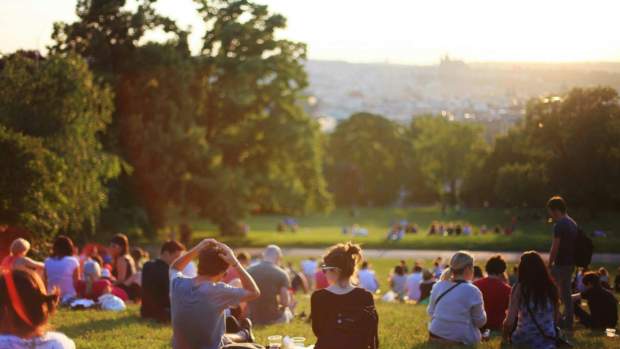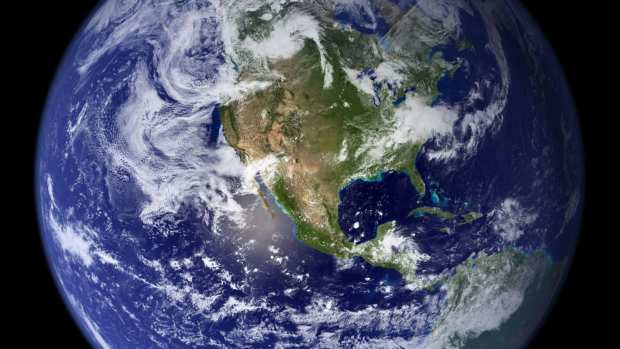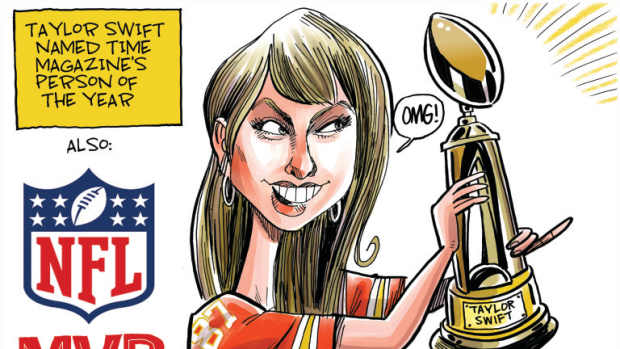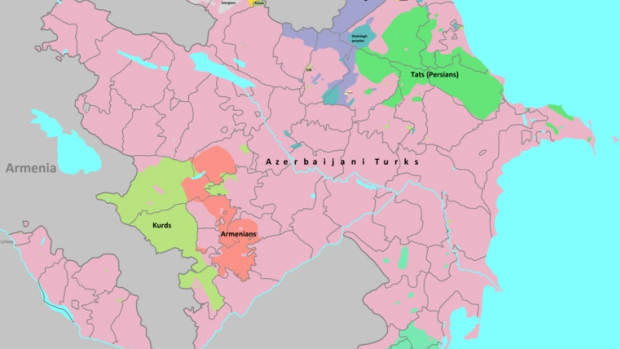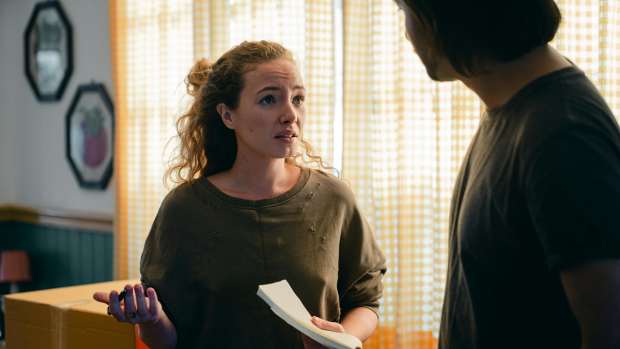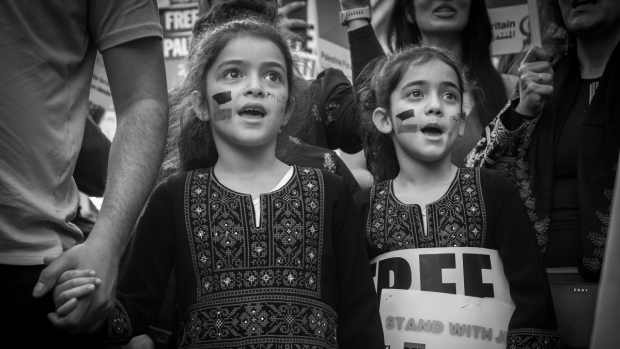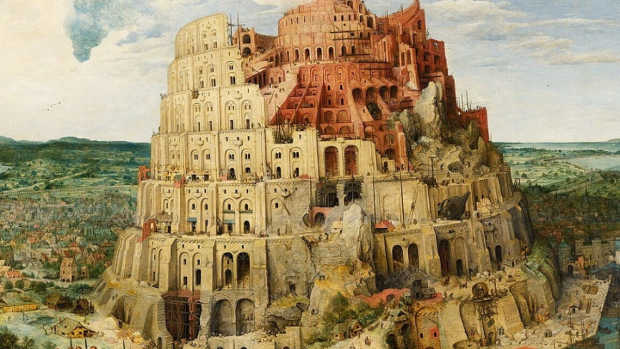Henry Kissinger's Secret Trip to China
Recently I was thinking about all the negative things that have happened in our world over the past 100 years - multiple wars; 9/11; AIDS; Communism and the threatened nuclear holocaust; the Holocaust itself; the list goes on and on. But how many positive, earthshaking events can you name? I can think of three: the landing on the moon in 1969 and the space program that followed; medical breakthroughs that eradicated or controlled many human diseases and led to organ transplants; and Dr. Henry Kissinger's secret trip to Beijing in 1971 that led to President Nixon's visit to China in 1972 and the thawing of relations between these two superpowers.
Shortly thereafter, on a trip to New York City, I had a chance meeting with Kissinger in a restaurant near where I was staying. He is now nearing 90 years of age, but looks much the same as he did in 1971, and still has that booming voice. I mentioned his 1971 trip to Beijing, and how audacious and important in a positive way it was to world political history in the 40+ years since then. I told him that I have made 18 trips to China since 1980, which would not have been possible had he not opened the door as a result of that fateful trip. Kissinger, probably more used to criticism than compliments in recent years, warmly thanked me.
I googled that 1971 trip, and amazingly enough, after a short search I was able to download Kissinger's TOP SECRET/SENSITIVE/EXCLUSIVELY EYES ONLY 28-page report to President Nixon on July 14, 1971 regarding that secret trip and his talks with Chou En-lai, second in command in China to Mao Tse-Tung. This report had apparently recently been declassified.
Here is how that trip unfolded:
Nixon, as early as 1967, had written that it was not appropriate to leave China "outside the family of nations forever". As soon as he became President in January, 1969, he encouraged his National Security Advisor Kissinger to work on a long term rapprochement with China, and channels were opened through the leaders of Pakistan and Poland. This delicate dance proceeded for the next two years, with the U.S. lessening restrictions imposed on China, and signaling increased interest in sending a representative of ministerial rank or a special Presidential envoy to Peking (Beijing) to explore the warming of relations.
In April, 1971, after a brief, friendly, supposedly impromptu meeting of an American ping pong player on the Chinese team bus at a tournament in Poland, the U.S. ping pong team was invited to and visited China, and was received warmly. Shortly thereafter, the high level, secret trip was on, and Kissinger and his assistant, Winston Lord, were chosen to make it. The pretext for the trip was a visit by Kissinger to Pakistan for high level discussions with Pakistan's President Yahya Khan, who had visited Beijing himself the previous year, and had secretly discussed a future visit to China by an American envoy.
Kissinger's "meetings" with the Pakistani leadership ended on a Thursday in early July, and Kissinger then was reported to be resting in Pakistan with an illness before returning to the U.S. In actuality, in the pre-dawn hours of Friday, July 9, 1971, he and Winston Lord (who spoke Chinese) boarded a Pakistani airplane and were greeted on the plane by four senior Chinese officials, headed by Chang Wen-chin, head of the West European and American Department of PRC's Foreign Ministry. Three Chinese navigators also were on the plane to conduct it to Beijing. By noon, they had arrived at the Beijing airport.
A little context is needed here: in July, 1971, the disastrous Chinese Cultural Revolution was still going strong (it would not end until 1976), and the U.S. was deeply engaged in the destructive Vietnam War; China was aligned with the North Vietnamese. Kissinger was also conducting secret talks with the North Vietnamese in Paris to try to end the war during this period.
At the Beijing airport, the Americans were met by the very senior "Long Marcher" Marshal Yeh, who immediately sought to confirm that President Nixon was prepared to visit China and that Kissinger was there for constructive talks among equals. He also wondered why the visit was to be done secretly. Was he ashamed to acknowledge meeting them? The Chinese were showing extreme sensitivity to slights such as Secretary of State John Foster Dulles' refusal to shake Chou En-lai's hand in Geneva in 1954.
They were whisked to a stately, serene, totally secluded government guest house, and after a Chinese meal, one of "staggering variety and quantity" on their trip, they awaited Chou En-lai's arrival. He came at 4:30 pm, and Chou, as he demonstrated throughout the entire two-day visit, "was matter-of-fact, urbane, and totally at ease without any of the self-conscious sense of hierarchy of Soviet officials". Three hours of substantive discussions followed, with Kissinger laying out an agenda which included Nixon's visit, Taiwan, Indochina (Vietnam), relations with Japan and the Soviet Union, South Asia (especial India, with whom China had strained relations since a 1962 war), future American-Chinese communications, arms control, and other topics of interest to the Chinese. Taiwan was of immediate interest to the Chinese, and Kissinger focussed initially on Vietnam.
After a 15-course dinner, they resumed discussions, dominated by great power relations in general: Chou feared a remilitarized Japan, and "violently and contemptuously attacked Soviet imperialism", and Kissinger explained the philosophical framework of U.S. foreign policy in the post-World War II period.
On Saturday morning, after a tour of the Forbidden City, they reconvened at the Great Hall of the People for 4.5 hours of discussions sandwiched around a 1.5 hour Peking duck lunch. Before lunch, Chou made a 1.5 hour presentation (without notes), responding to each of the seven points on Kissinger's original agenda. Chou made "an extremely tough presentation, though put forward without rhetorical flourish", and worried about big power collusion which could result in China being carved up by the U.S., USSR, and Japan. His constant view was that the world must move toward peace, that there is too "much turmoil under the heavens".
Recommended Articles
There was repartee as to who invited whom, and Kissinger toughly pointed out that it was the Chinese who raised the issue of a Nixon visit and that the U.S. would not accept any preconditions. After the luncheon, Chou "launched into a moving account of the Cultural Revolution…One could tell that the Revolution was an anguishing period for him. He described China as torn between its fear of bureaucracy and the excesses of revolution with each side claiming to speak for Mao until the acknowledged excesses threatened to destroy the fruits of some fifty years of struggle." Kissinger then continued his point-by-point rebuttal to Chou's morning presentation.
Chou abruptly returned to Nixon's visit to China, suggesting the summer of 1972, and urged that Nixon meet with the Soviet leaders first. Kissinger said that a U.S.-Soviet summit had been agreed to in principle, but no commitment could or would be made. He also noted that a summer, 1972 visit by Nixon to China might look like a political campaign gesture, so Chou moved the visit up to spring, 1972. After dinner, the evening was spent (without Chou's presence) with give-and-take negotiations over Nixon's visit, and drafting a mutually satisfactory communique. Once agreement had been reached on the wording of the communique, Chou quickly reappeared, and accepted all the details for the summit that Kissinger put forward.
Kissinger then explained to Nixon in his memo the dynamics of the Chinese positions: "Ideologically, the concept of Chairman Mao sitting down with the leader of what they call the 'imperialist camp' must be extremely difficult for some Chinese to accept…On the other hand, I believe they are deeply worried about the Soviet threat to their national integrity, realistically speaking, and see in us a balancing force against the USSR…it is extremely hard for life-long revolutionaries to act against their own principles, and we must be exceptionally careful not to drive them away."
Kissinger was impressed with the "inward philosophical tension and inward strength" of the Chinese…"(T)hese were men in some anguish. Yet their long history of past suffering gave them an inner confidence that was reflected in a certain largeness of spirit. There was none of the Russian ploymanship, scoring points, rigidity or bullying. They did not turn everything into a contest. Profoundly committed and firm on principle, they dealt in historical terms; and once we reached basic understandings, such as on the announcement, details fell into place without maneuvering for petty gains."
Chou En-lai especially impressed Kissinger, whom he ranked "with Charles De Gaulle as the most impressive foreign statesman I have ever met". [Nixon liked De Gaulle, so this might be just a "politically correct" comment.] He found Chou someone who "spoke with an almost matter of fact clarity and eloquence. He was equally at home in philosophic sweeps, historical analysis, tactical probing, light repartee. His command of facts, and in particular his knowledge of American events, was remarkable." Chou was "a man concerned both with the revolutionary fire of the next generation and the massive daily problem of caring for 750 million people [now 1.3+ billion], one who endured the tribulations of the Long March and was now inviting the President of the United States to visit his capital."
Kissinger found that "(a)lmost all the positive qualities we saw are Chinese, not communist, and can be found in Taiwan or Singapore or San Francisco…Our dealings will be difficult, especially as we inaugurate a brand new relationship. The rewards and risks will be great. But if we keep our nerve and are clear about our purposes we can start a new historical course...My assessment of these people is that they are deeply ideological, close to fanatic in the intensity of their beliefs. At the same time they display an inward security that allows them, within the framework of their principles, to be meticulous and reliable in dealing with others."
Kissinger recognized that "the process we have now started will send enormous shock waves around the world. It may panic the Soviet Union into sharp hostility. It could shake Japan loose from its heavily American moorings. It will cause a violent upheaval in Taiwan. It will have a major impact on our other Asian allies, such as Korea and Thailand. It will increase the already substantial hostility in India." He concluded by saying
"(W)e were well aware of these risks when we embarked on this course. We were aware too that the alternative was unacceptable--continued isolation from one-quarter of the world's most talented people and a country rich in past achievements and future potential."
Forty years later, China has almost totally modernized, and has joined the world community and learned all too well how to operate as a capitalist society, albeit still under a one-party nominally Communist government. Ten years after Kissinger's visit, I made the first of my 18 trips to China, in my own form of ping pong diplomacy, to co-lead a trek into one of the beautiful mountainous areas of Tibet that had just been opened to foreigners. The next year, after inviting the head of the Chinese Mountaineering Association to visit Los Angeles to speak at an American Alpine Club convention, I returned to China with my family (as guests of the Chinese government) for a month to tour some of the remote areas of China rarely visited by Westerners.
My later trips to China and Tibet were for business, mountaineering, tourism and filmmaking purposes, and I found the Chinese people much like Kissinger described them. I can thank him for opening the door to this huge, fascinating country that had been closed to Americans for too long.
Is it possible that President Obama and his Secretary of State, John Kerry, could accomplish a similar breakthrough in one of the world's major trouble spots during the remaining 3+ years of his Presidency?
Ted Vaill
Saturday, 6 April 2013
The opinions expressed here are solely the author's and do not reflect the opinions or beliefs of the LA Progressive.






